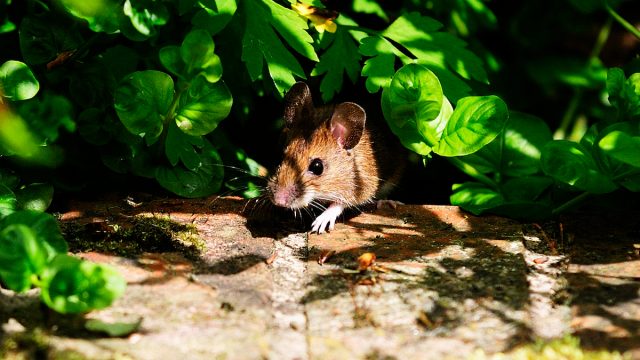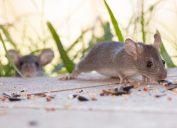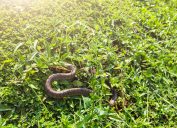8 Plants Attracting Mice to Your Home
These popular plants could be the reason for your pest problem, experts say.
As cooler weather approaches, you may find yourself daydreaming about cozy nights by the fire and holiday celebrations. However, there's another hallmark of fall that you're probably less enthusiastic about: mice. These pests often make their way indoors as temperatures dip, finding warm spots to curl up—and even breed—inside your home. This may be particularly true if you have certain plant life growing in or around your house. To safeguard your space, read on to hear from pest control experts about the plants that attract mice to your home.
RELATED: 8 Surprising Things in Your Yard That Attract Mice to Your Home.
8 Plants That Attract Mice
1. Weeds
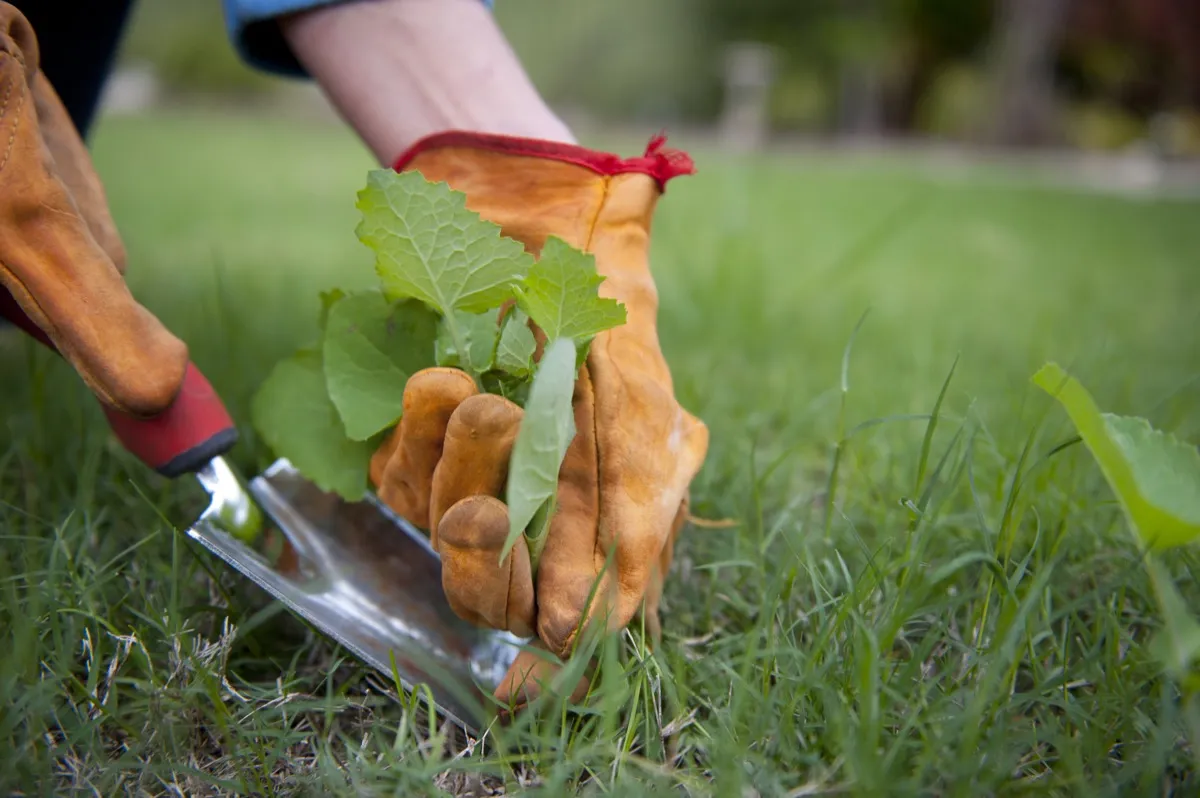
That lawn full of weeds isn't just an eyesore—it could be attracting mice to your home.
"Some preferred weed species include foxtail, silky bent grass, shepherds' purse, quack grass, and creeping thistle," says Craig Sansig, an associate certified entomologist and service director at Viking Pest Control. "It is theorized that [rats'] propensity to nibble on wires and other cylindrical items is a behavior that may originate from chewing the stalks of plants to gain access to the seeds above."
2. Fruit trees and plants
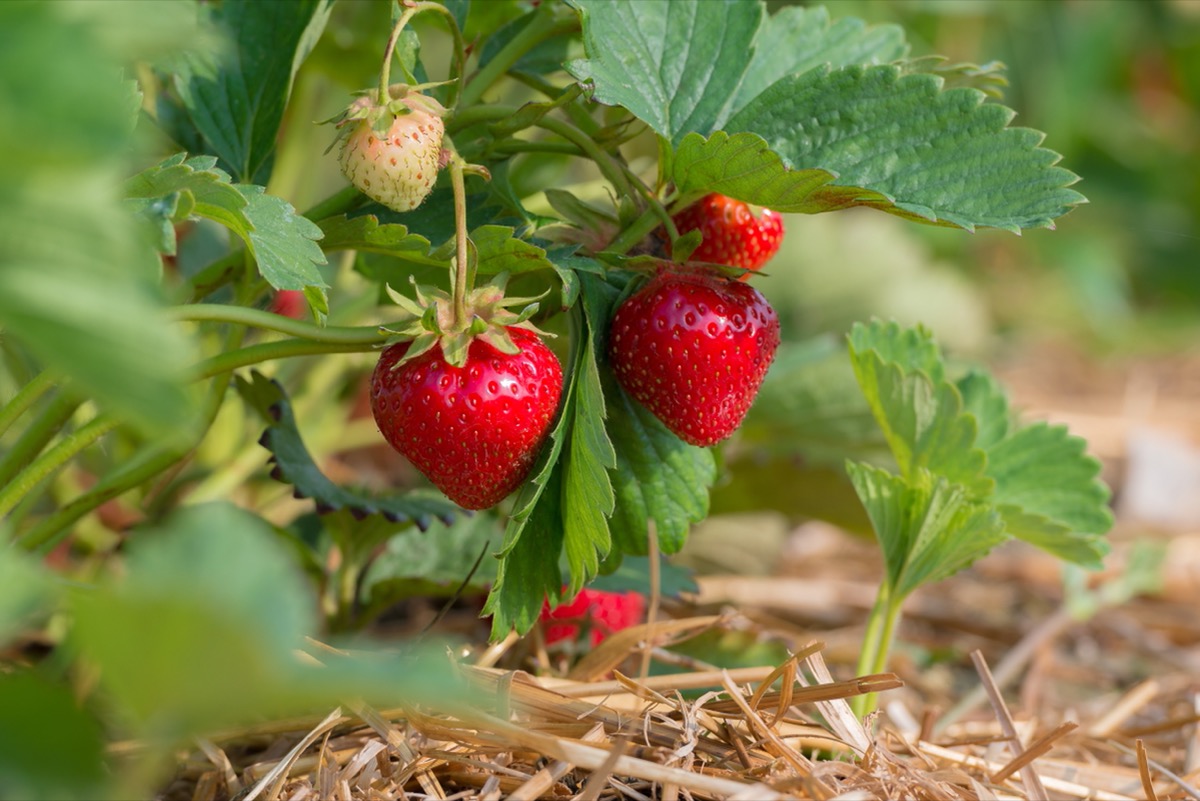
Whether you have berries growing wild in your yard or a modest lemon tree on your deck, these tasty fruits can make your property—and by extension, home—smell like a snack to mice.
"Rodents love foods that are sweet and high in water content such as blueberries, raspberries, blackberries, apples, pears, and more," Denise Trad Wartan, General Manager of Trad's Pest Control, tells Best Life.
Nancy Troyano, PhD, a certified entomologist with Ehrlich Pest Control, notes that they particularly enjoy strawberries, and will even eat them before they are ripe.
If you do have fruit trees on your property, be sure to harvest any ripe fruit and pick fallen or rotting fruit off the ground.
RELATED: 6 Plants That Keep Deer Out of Your Yard, According to Experts.
3. Ground cover plants
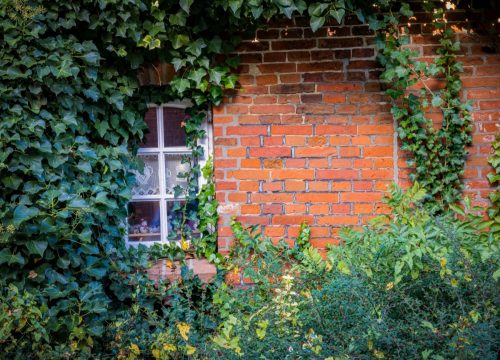
Ground cover plants are those that grow low to the ground and spread easily—so they're at the perfect level for mice.
"Thick ground cover like ivy or vinca can offer a perfect hideaway for mice. The density and shelter of such plants can be particularly appealing," explains Gene Caballero, a landscaper and co-founder of GreenPal. "For alternatives, think about less dense options such as thyme or ornamental grasses which aren't as accommodating."
You should also keep ground cover plants a minimum of one foot away from your house, according to Damian Marcelo, certified entomologist at Fox Pest Control. And if you have ivy, it's best not to allow it to climb up your home's facade.
4. Cornstalks
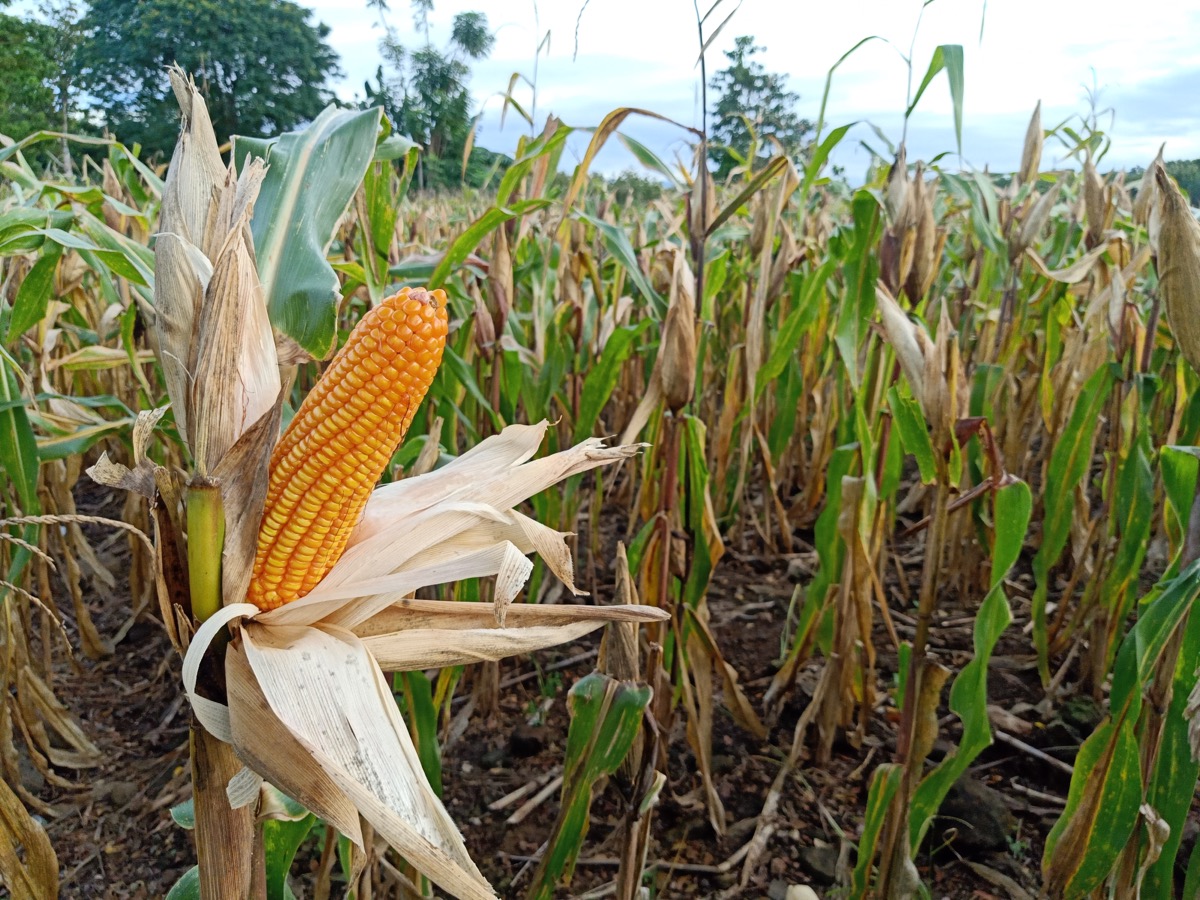
You're not the only one who enjoys that corn you're growing in your garden: Mice love it, too.
"Corn and seeds are the main vegetation that will drive mice towards your home. The kernels on a cob of corn are a sweet treat for them to devour," says Sharon Roebuck, owner of Eastside Exterminators.
RELATED: 9 Cleaning Habits That Attract Spiders.
5. Tubers and root vegetables
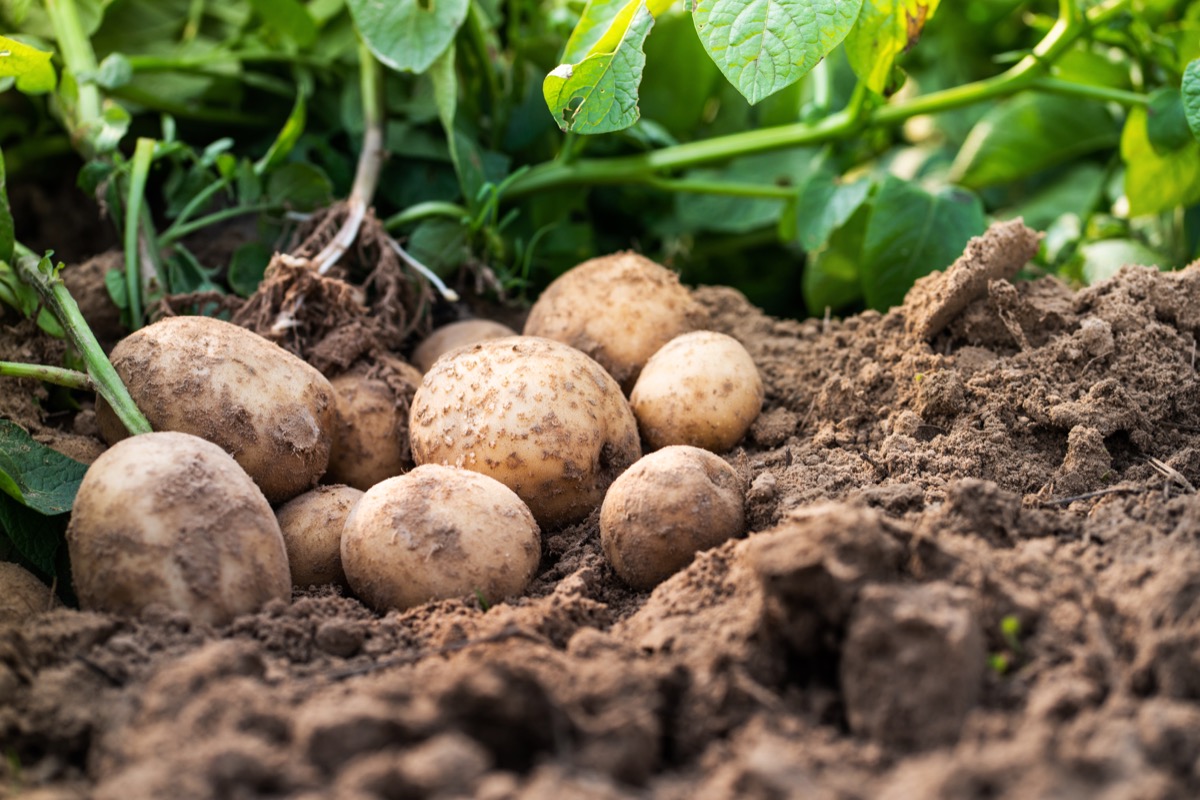
While root vegetables and tubers may be tough for you to get out of the ground, they're no match for mice.
"Mice will be attracted to any type of vegetable that grows low to, or in, the ground. These can include potatoes, zucchini, carrots, etc.," says Roebuck. "Since they are in the ground, mice have easy access to them and will make a meal out of your prize vegetables."
If they've got a readily available source of food close to the ground near your home, it won't be long before they're making their way under doors and cracks in your foundation, too.
6. Pea and bean seedlings
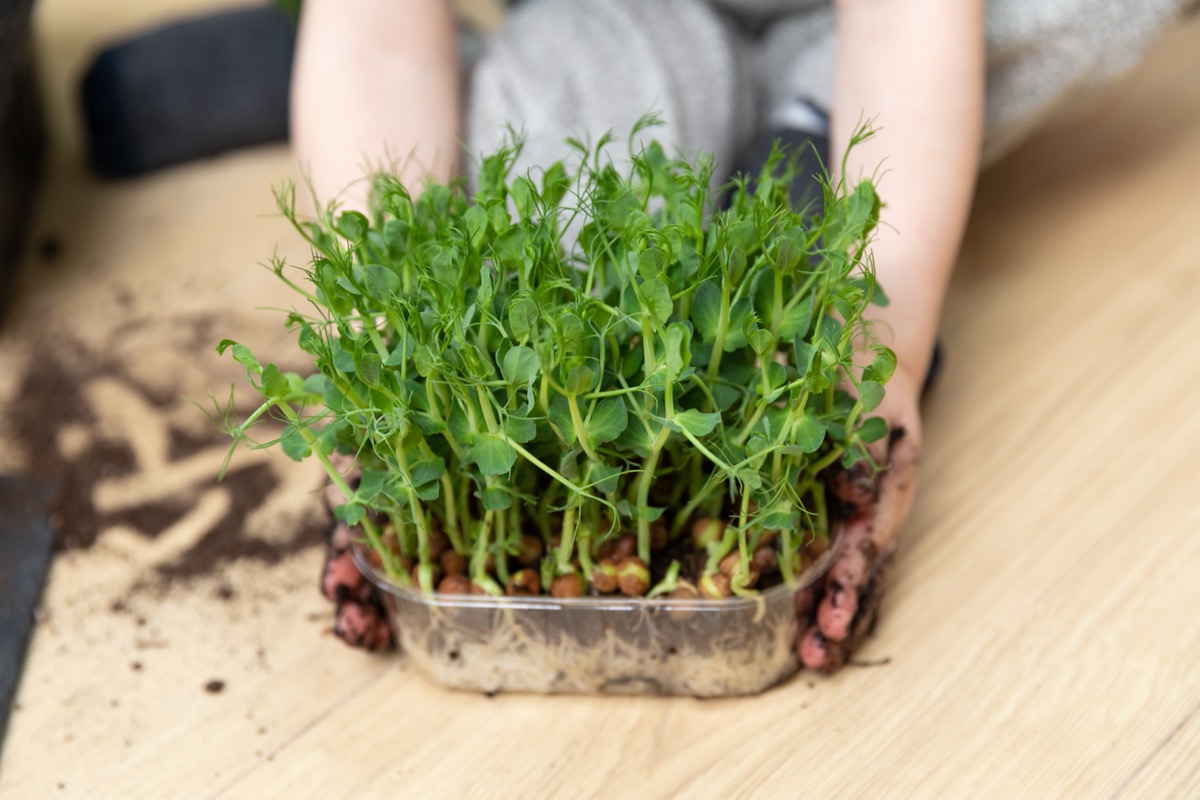
Whether they're sprouting in your kitchen or in your greenhouse, those pea and bean seedlings you just planted might as well be a "welcome" sign to mice.
"A mouse can eat the seeds of peas [and] beans that have just been sown and defoliate seedlings by munching on the foliage," says Jordan Foster, a pest management expert with Fantastic Pest Control. "Mice often enter greenhouses in cold weather and destroy many seedlings overnight."
For more pest control tips sent directly to your inbox, sign up for our daily newsletter.
7. Nut trees
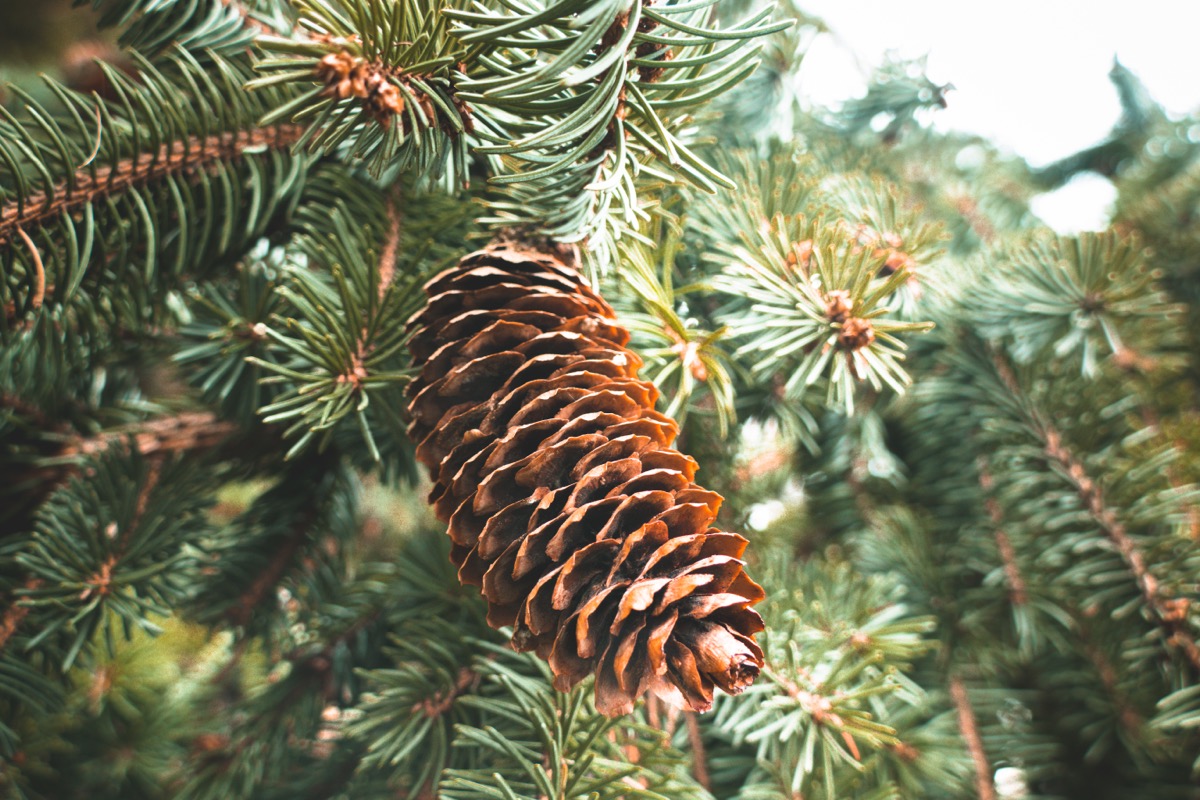
From pine nuts to chestnuts, mice will lay waste to nuts growing on the trees in your yard—and if the branches of any nut trees grow near your home, it may provide mice easy access to your gutters, and eventually, the inside of your house.
"Mice love to feed on nuts because of their seeds," says pest control expert Ryan Smith, owner of Ant and Garden Organic Pest Control. "Seeds and nuts are high in protein, which is why they love it."
Even if you don't have any nut trees on your property, your bird feeder could be drawing mice to your home. "If you have a bird feeder, be aware of mice and rats as they tend to raid it," Smith cautions, noting that mice may be attracted to the seeds or the peanut butter you're using on your bird feeder.
8. Sunflowers

Speaking of seeds—sunflowers may look big and beautiful in your yard, but their seeds are a tasty treat for mice. According to Toronto Master Gardeners, sunflower seeds can also attract squirrels, chipmunks, and raccoons.
If you'd still like to have sunflowers in your yard, plant them as far as possible from your home and stay diligent about maintaining your lawn around where they're located.
